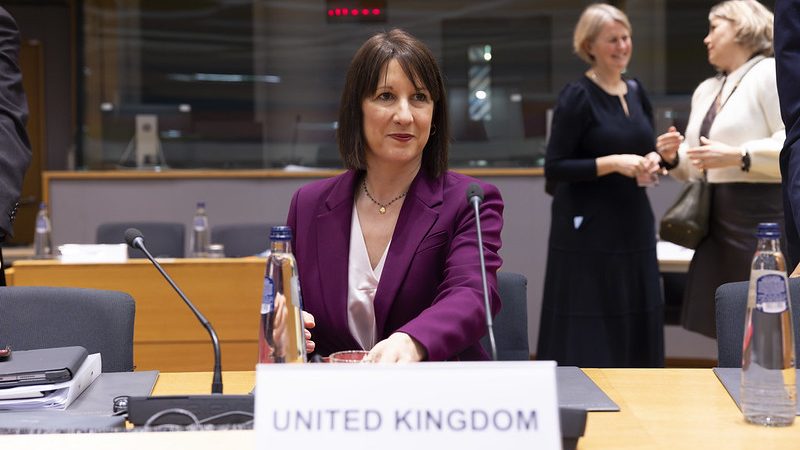
Six months into being an MP, I have experienced a range of emotions: satisfaction from helping a constituent, pride in voting into law ground-breaking legislation, worry at the pollution of public debate by the extreme positions of the ultra-wealthy and, in the last few days, simple puzzlement.
The last of these feelings emerged when I read the anonymous comments of a small number (or perhaps it is just one particularly loquacious individual) of my colleagues seemingly in a panic about public spending and the economy.
I’m not about to do an impression of Dr Pangloss – we are far from the best of all possible worlds. The economic inheritance of our new government was truly appalling. Despite well over a decade of decay in our public services, the Tories also managed to rack up ever more public debt and were committed, in theory at least, to billions of additional spending for which no source was identified.
The private sector was hardly better off – the fourteen years of Tory rule saw real pay stagnate while asset values boomed: deepening generational divides and even weakening public trust in democracy itself.
So, the economic conditions we inherited were awful and just six months in, they largely still are: it takes time and hard work to turn the ship around.
I don’t celebrate winter fuel and two-child cap decisions, but of course I understand them
What puzzles me, though, is that some (or one, as I said) of my colleagues think there was a pain-free way to fix things quickly and that, somehow or other, we can return to the true path to swift economic happiness if we just moved the Chancellor on.
In what possible world does that make sense? Socialism is a religion of priorities, and if you prioritise all things you prioritise nothing. And when we do truly prioritise then we do need to be, to use the word of the week, “ruthless” in driving them forward.
That’s what we have seen the Chancellor do. It also makes good political sense to take the hardest decisions at the start of the parliament.
Does that mean I celebrate the limitation of the winter fuel allowance or the continuation of the two-child benefit limit? Of course not. But I understand, in the current economic climate, why those decisions were made.
It’s not an easy sell, of course. Voters feel, with good reason, they were already paying too much under the Tories. For many, it still feels like far more pain than gain.
And in Scotland our main opposition is a Scottish National Party that spent the entire election campaign claiming we would make deeper spending cuts than the Tories and the instant they were defeated switched to saying simultaneously that it was disgraceful some taxes were to rise to pay for increased spending, and that we were not increasing spending by enough.
The SNP even made the same determination as the Labour government about the affordability of the winter fuel allowance and then pretended it was a decision made in Whitehall. It’s deeply dishonest but they will keep saying it so long as they think they will benefit electorally and can get away with it.
It’s not legitimate to think this is a crisis, and certainly not to blame Reeves for it
The current “crisis” that has panicked my anonymous colleague or colleagues is supposedly composed of two elements – an alleged slide in the value of sterling and a rise in interest payable on government bonds. But I don’t think it is legitimate to think of this as a crisis at all.
At the time of writing the pound’s exchange rate with the euro was actually marginally higher than on the last day the Tories were in office, whilst down a little more against the dollar – but still well above the points seen after Liz Truss’s economy-crashing budget.
Interest rates have risen – but they have been rising since the middle of 2020, largely driven by global markets. The yield on ten-year UK government bonds has risen – at the time of writing – by a slightly lower proportion than those of the US since their mutual most recent lows in the autumn.
Whether this constitutes a crisis is a matter of debate; but even if it is, it would be unreasonable to blame Rachel Reeves for it.
For more from LabourList, follow us on Bluesky, Threads, X, Facebook, Instagram or WhatsApp.
SIGN UP: Get the best daily roundup and analysis of Labour news and comment in our newsletter
- SHARE: If you have anything to share that we should be looking into or publishing about this story – or any other topic involving Labour– contact us (strictly anonymously if you wish) at [email protected].
- SUBSCRIBE: Sign up to LabourList’s morning email here for the best briefing on everything Labour, every weekday morning.
- DONATE: If you value our work, please donate to become one of our supporters here and help sustain and expand our coverage.
- PARTNER: If you or your organisation might be interested in partnering with us on sponsored events or projects, email [email protected].
- ADVERTISE: If your organisation would like to advertise or run sponsored pieces on LabourList‘s daily newsletter or website, contact our exclusive ad partners Total Politics at [email protected].




More from LabourList
‘Factionalism at the top Is weakening Labour – and handing a gift to Reform’
‘Europe must stand strong on its own as US security guarantees grow conditional’
‘Tackling poverty should be the legacy of Keir Starmer’s government’